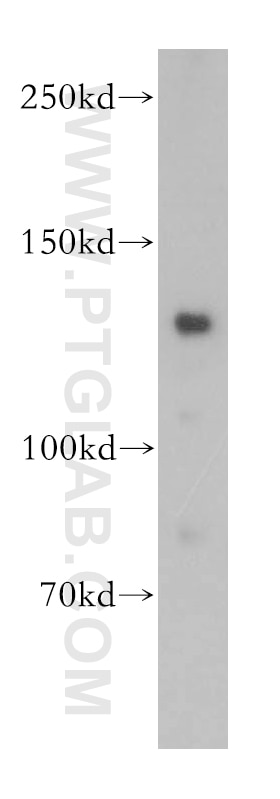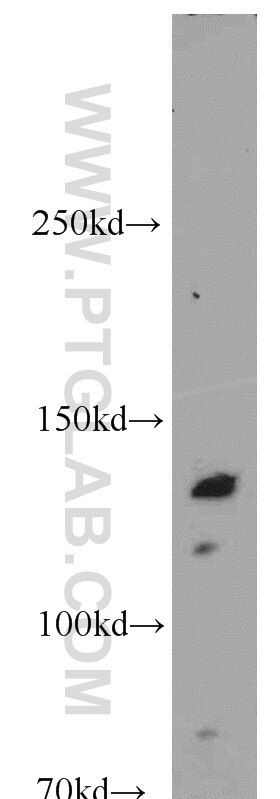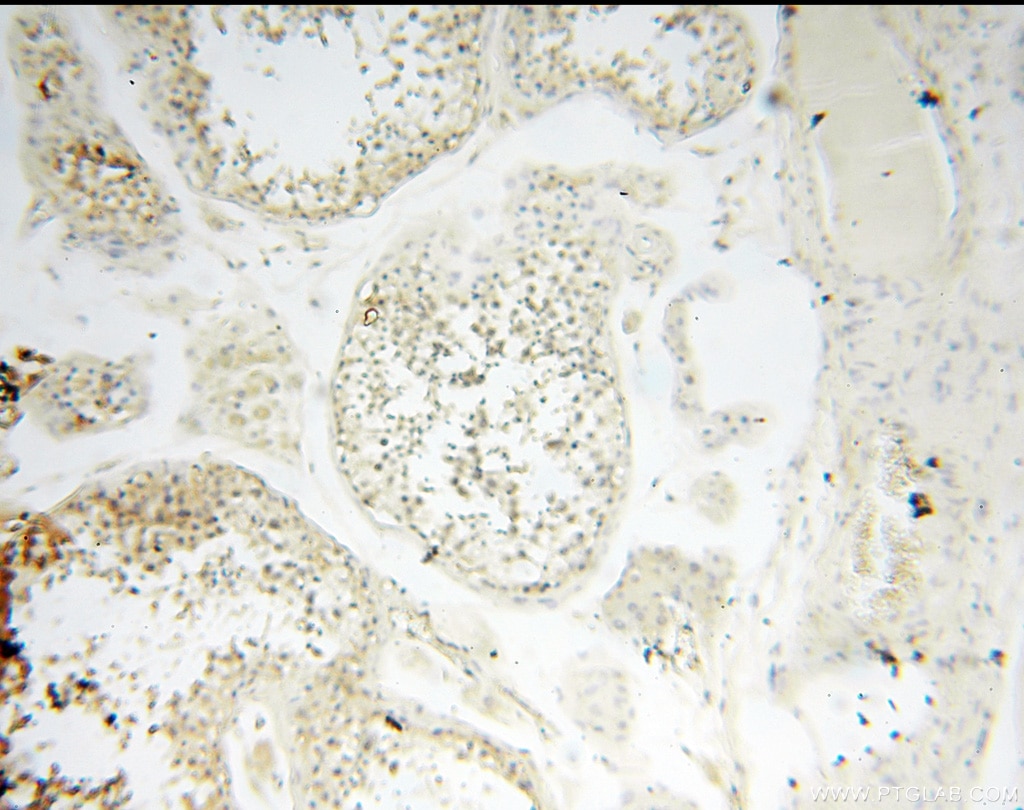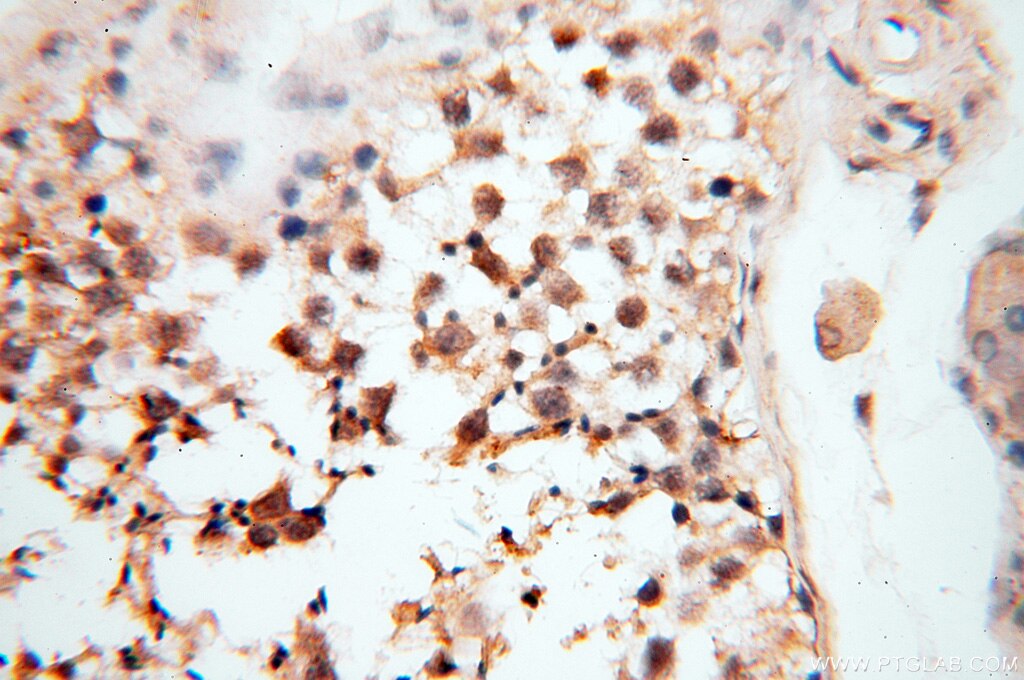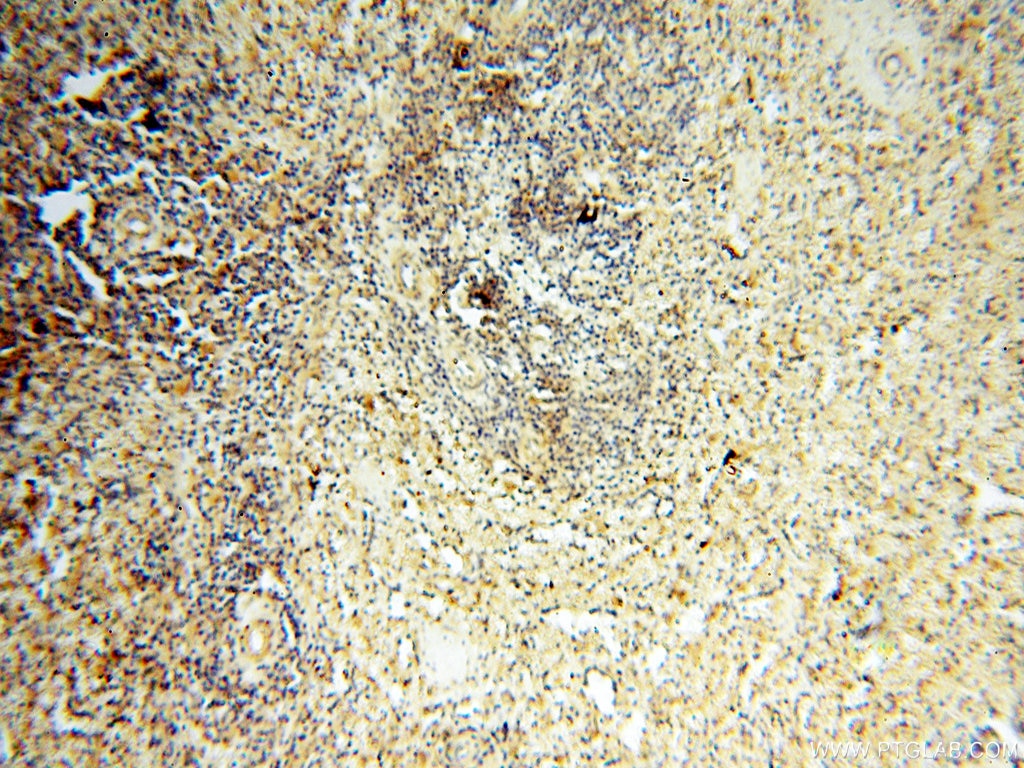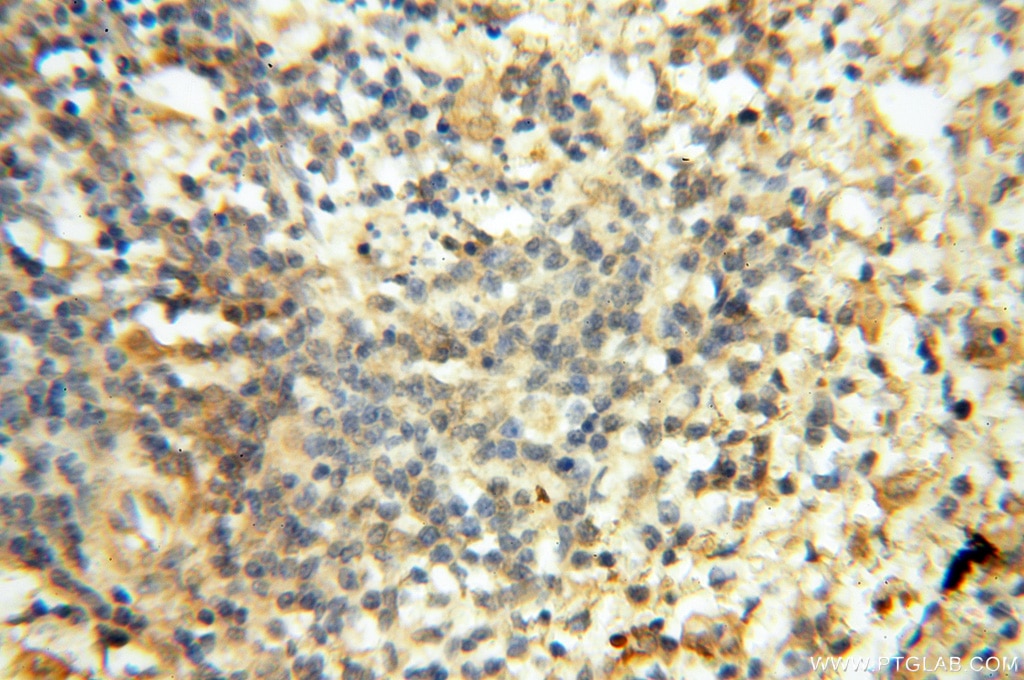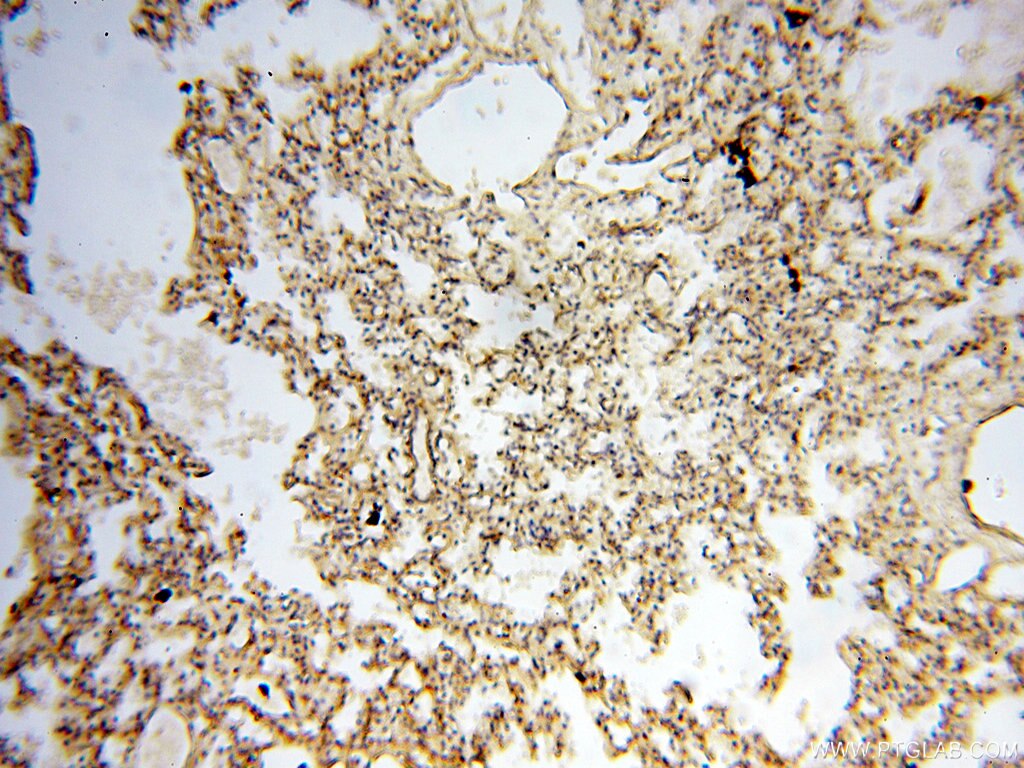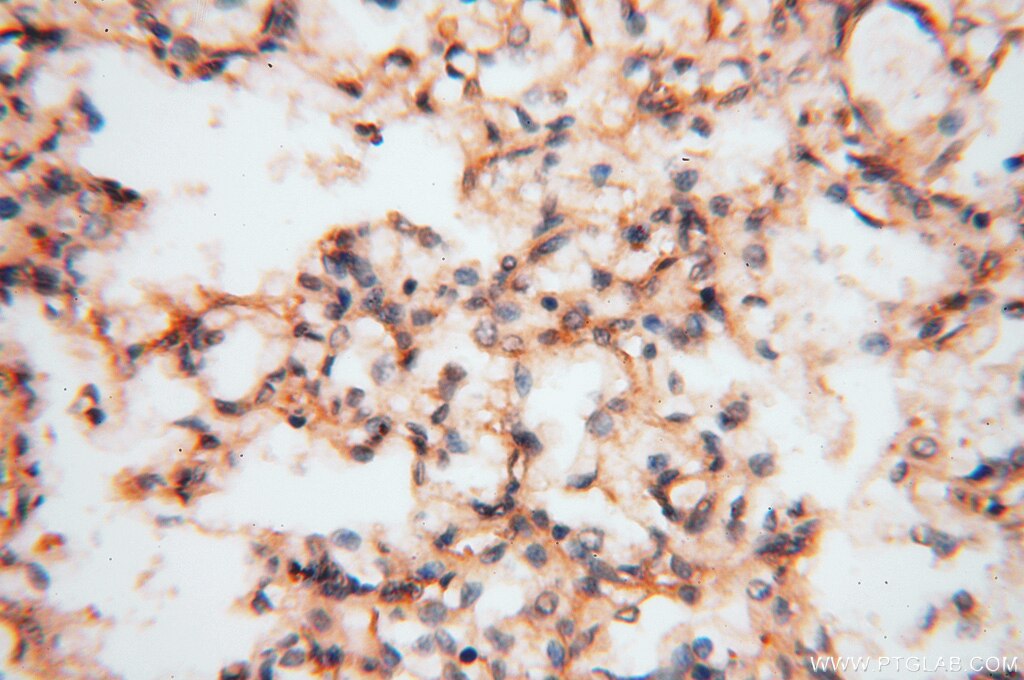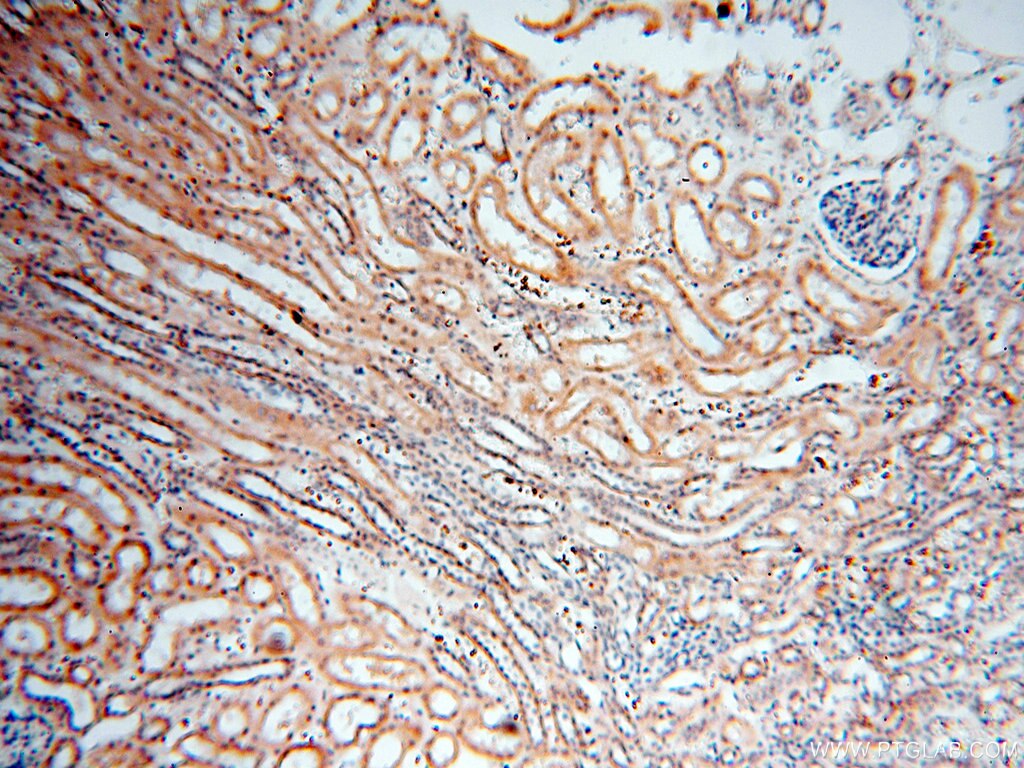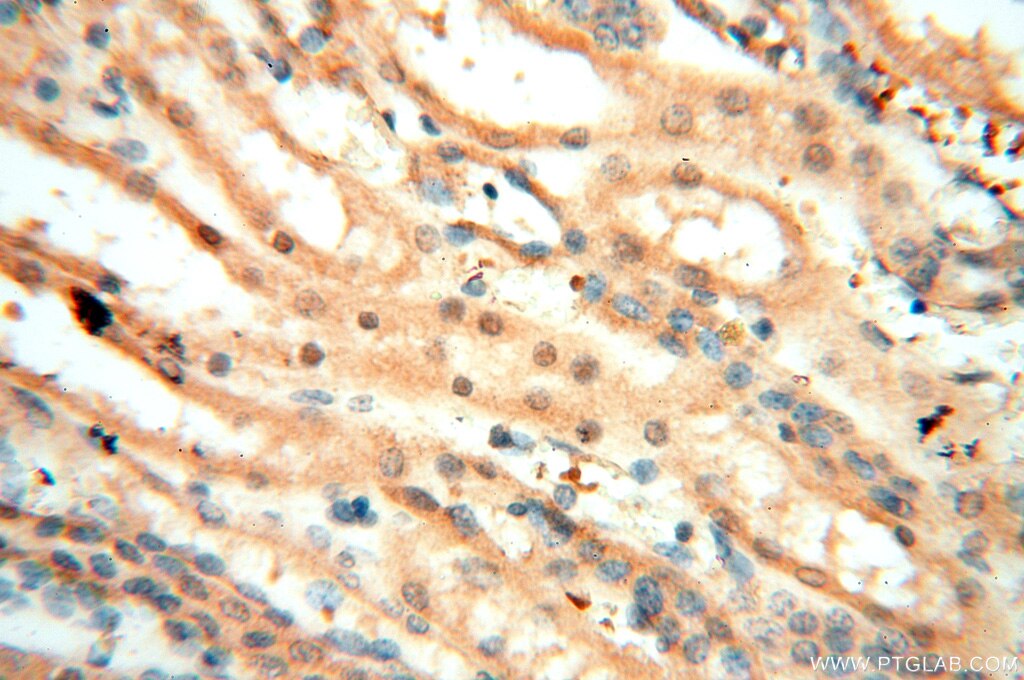CARD6 Polyklonaler Antikörper
CARD6 Polyklonal Antikörper für WB, IHC, Indirect ELISA
Wirt / Isotyp
Kaninchen / IgG
Getestete Reaktivität
human
Anwendung
WB, IHC, Indirect ELISA
Konjugation
Unkonjugiert
Kat-Nr. : 18029-1-PBS
Synonyme
Geprüfte Anwendungen
Produktinformation
18029-1-PBS bindet in WB, IHC, Indirect ELISA CARD6 und zeigt Reaktivität mit human
| Getestete Reaktivität | human |
| Wirt / Isotyp | Kaninchen / IgG |
| Klonalität | Polyklonal |
| Typ | Antikörper |
| Immunogen | CARD6 fusion protein Ag12595 |
| Vollständiger Name | caspase recruitment domain family, member 6 |
| Berechnetes Molekulargewicht | 1037 aa, 116 kDa |
| Beobachtetes Molekulargewicht | 130 kDa |
| GenBank-Zugangsnummer | BC093825 |
| Gene symbol | CARD6 |
| Gene ID (NCBI) | 84674 |
| Konjugation | Unkonjugiert |
| Form | Liquid |
| Reinigungsmethode | Antigen-Affinitätsreinigung |
| Lagerungspuffer | PBS only |
| Lagerungsbedingungen | Store at -80°C. 20ul Größen enthalten 0,1% BSA. |
Hintergrundinformationen
The caspase recruitment domain (CARD) is a homotypic protein-protein interaction module that links components of signal transduction pathways implicated in the regulation of apoptosis or adaptive or innate immunity. Although much progress has been made in assigning precise roles to most CARD-containing proteins, the functions of the 1,037-amino-acid (aa) human and 1,175-aa mouse CARD6 proteins are still unknown. CARD6 has a unique structure in that it contains the CARD at the N terminus, a glutamic acid-rich region following the CARD, and a proline-rich region at the C terminus. CARD6 also harbors a 350-aa region with similarity to upregulated gene 4 (URG4), a protein that is induced in response to hepatitis Bx antigen overexpression and exerts a positive effect on proliferation. Both CARD6 and URG4 share structural features with members of the multifaceted, IFN-inducible GTPase (IFNiGTPase) superfamily, which contains some of the proteins most abundantly induced during cell-autonomous immune responses. The calcualted molecular weight of CARD is 116 kDa, but modified CARD6 is about 130 kDa. (PMID: 18160713)
